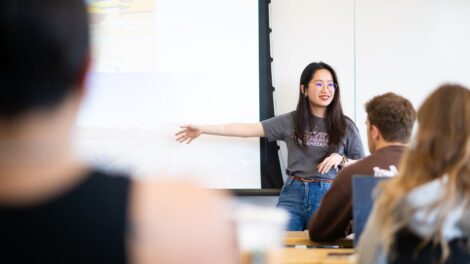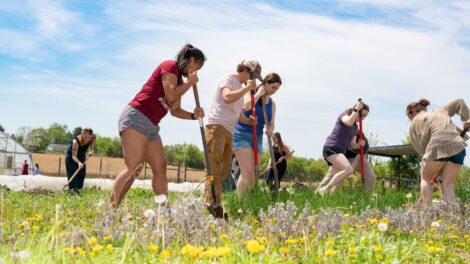Inside the classroom: Sustainability in the Urban Environment grows active learning in an interconnected world
Inside the classroom is a new series offering a glimpse into classes at Lafayette, the talented professors who teach them, and how they impact and define a student’s experience.
By Margaret Wilson
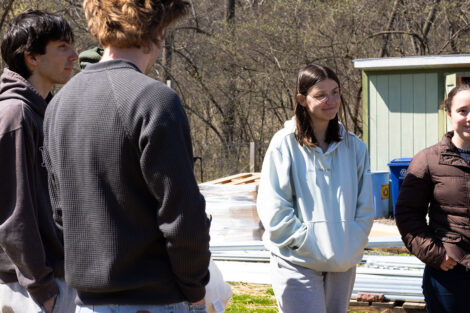
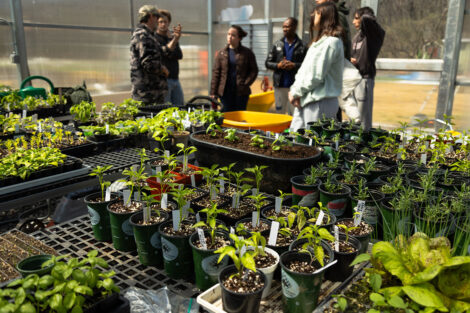
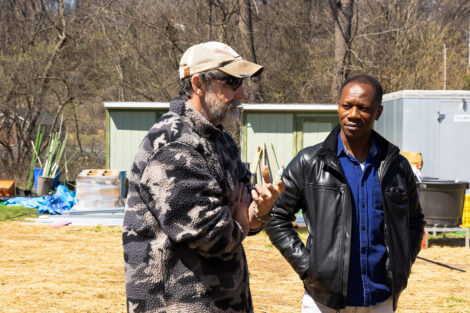
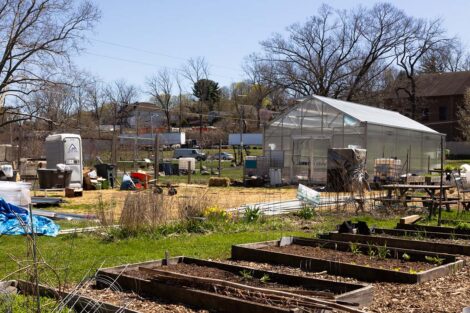

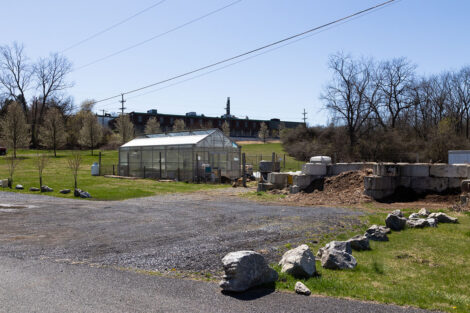
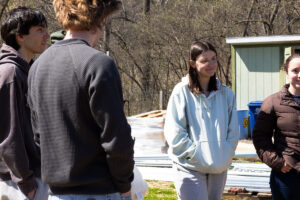
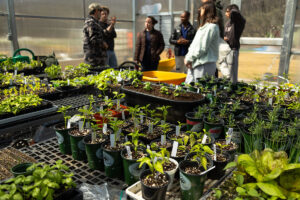
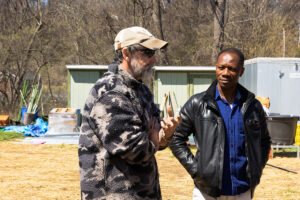
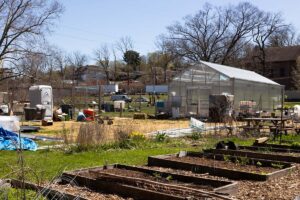
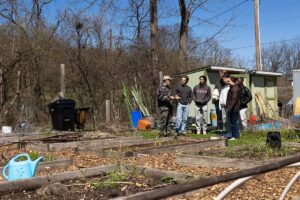
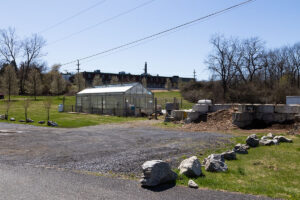
Just like a city, the curriculum of EVST 375: Sustainability in the Urban Environment is always changing and evolving.
Prof. Ernest Nkansah-Dwamena has been teaching the course since 2023, using student insights to further refine the learning experience.
“I’ve adapted the structure and topics over time to foster deeper student engagement through active learning,” Nkansah-Dwamena, who serves as assistant professor of environmental studies, says. “Knowledge sticks when students apply it, debate it, and wrestle with it in real-world contexts.”
EVST 375 centers around urban sustainability, investigating how urban centers engage with the natural world around them, and vice versa. Topics such as biophilic design, green infrastructure, housing justice, food systems, and more help students understand how cities function as their own sort of ecosystems.
For Nkansah-Dwamena, it is crucial for students to move beyond theory and into practice, putting emphasis into the student as a whole person.
“I design assignments that mirror the complexity and collaboration of real-world problem-solving,” Nkansah-Dwamena says. “Students don’t just learn from lectures—they work on group projects, debates, role-plays, reflexive essays, and case studies that challenge them to think beyond the classroom.”
To keep this hands-on approach, the course includes various field trips and interactive projects that show urban sustainability in action, including an outing to the Lower Hackett Community Garden in Easton. The farm, run by Easton Garden Works, provides fresh produce for the local community while giving residents an opportunity to maintain their own green space.
This trip and others built into the course function as a way to get students engaged with the City of Easton and its sustainability initiatives that thrive all around them.
“These face-to-face conversations often inspire students to rethink their role as citizens and future professionals,” Nkansah-Dwamena says. “By observing grassroots efforts, they learn that meaningful change can begin right in their own neighborhoods, one small step at a time.”
Charlotte Farrelly ’26, who completed the course in spring 2025, finds that Nkansah-Dwamena’s boots-on-the-ground approach to instruction stands out.
“[Our field trips] helped us study all the different aspects of city planning, from talking with the storm drainage department in the City of Bethlehem to touring the urban farm that helps with food sovereignty,” Farrelly says. “I’ve learned how multiuse lots and an increase in green infrastructure can directly increase the quality of life for millions of people living in cities by fostering community.”
“Easton is a living case study for the themes we explore in class,” Nkansah-Dwamena says. “Students tackle real questions about Easton’s future, which ground abstract ideas into the realities of local neighborhoods and show students that change starts right where they are.”
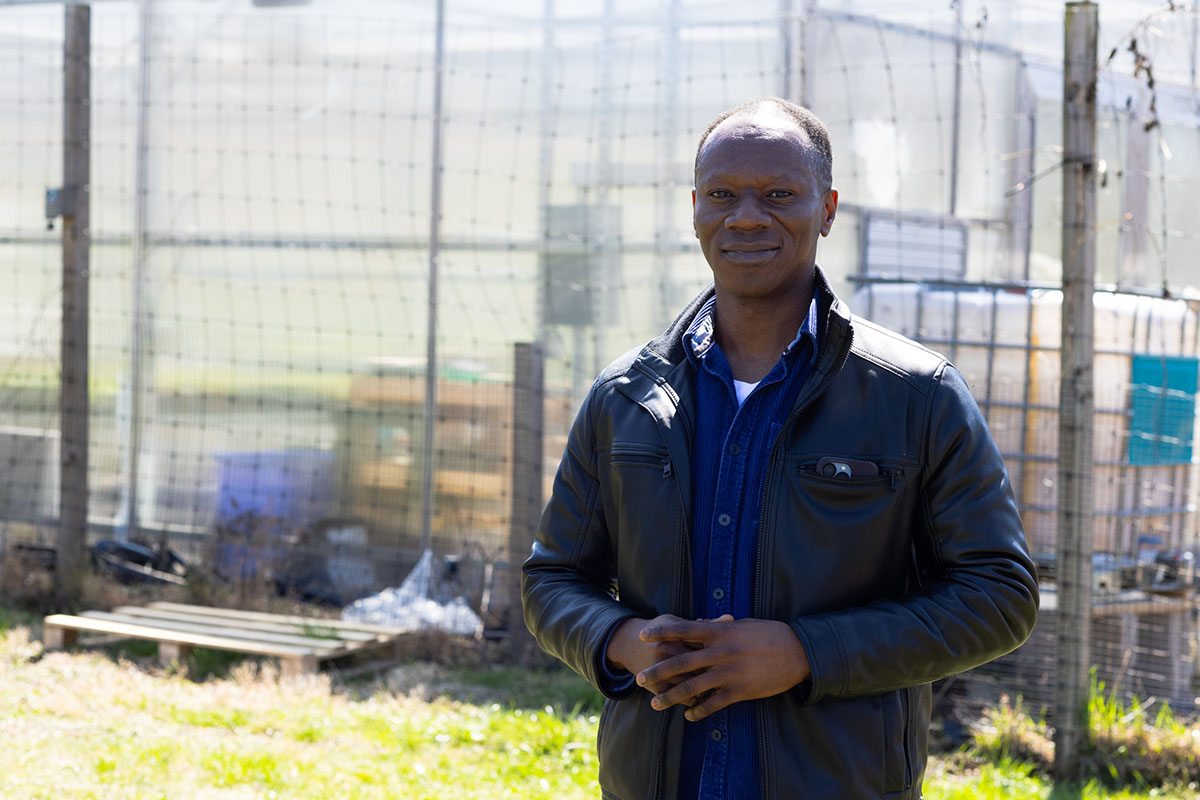
Professor Ernest Nkansah-Dwamena institutes an “ungrading policy” in his classes, focuses instead on critical thinking and personal growth as measures of success. | Photo by Amy Wolff
Nkansah-Dwamena’s philosophy as a professor also has a profound impact on his students’ ability to engage with the information. Adopting an “ungrading policy” that shifts the focus of the class from performance to personal growth, Nkansah-Dwamena defines success as the ability to think critically and engage in self-reflection, rather than recite information. Students also start each class period with a mindfulness meditation exercise.
Farrelly, an environmental studies and government and law double major, believes the tenets of EVST 375 apply to everyone, even those not studying environmental issues.
“I think sustainability should be a part of all departments at Lafayette,” she says. “The future of our planet depends on everyone.”
